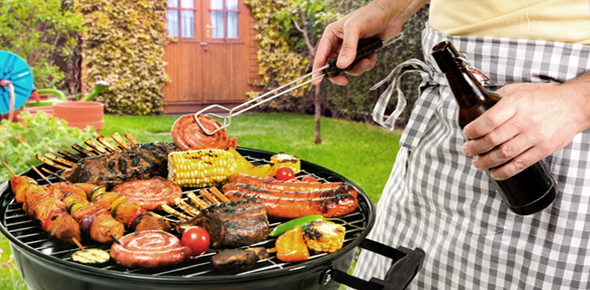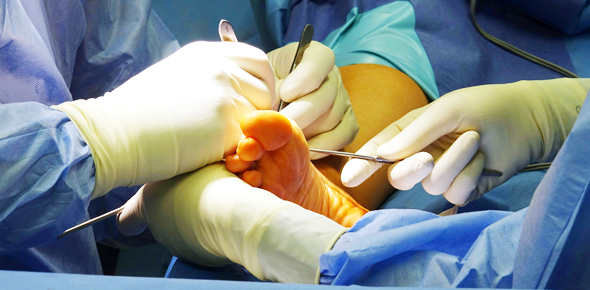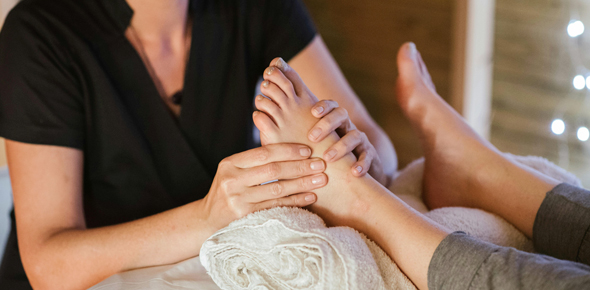“Is Your Grilling Giving You Gout?”

Gout is a common and complex form of arthritis that can affect anyone. It is characterized by sudden, severe attacks of pain, swelling, redness and tenderness in the joints, often at the base of the big toe. Although the big toe is the most common joint, it can also affect ankles, knees, elbows, wrists and fingers. The pain from gout is likely to be the most severe within the first four to twelve hours of onset. After the most severe pain subsides, joint discomfort can last a few days to a few weeks.
Gout occurs when urate crystals accumulate in your joint causing inflammation and intense pain. Urate crystals form when you have high levels of uric acid in your blood. Your body produces uric acid when it breaks down purines, substances that are found naturally in your body. Purines are also found in certain foods, such as steak, organ meats and seafood. Alcoholic beverages, especially beer and drinks sweetened with fruit sugar can promote higher levels of uric acid.
Normally, uric acid dissolves in your blood and passes through your kidneys into your urine. Sometimes your body produced too much uric acid, or your kidneys excrete too little. When this happens, urate crystals are formed inciting the inflammatory process in your joints.
Risk factors include diet (meat, seafood, alcohol and sweetened drinks), obesity, diabetes, untreated high blood pressure and certain heart and kidney conditions. Other factors include family history of gout and recent trauma or surgery. Certain medications typically prescribed for organ transplant patients, such as thiazide diuretics, low dose aspirin and anti-rejection drugs also can contribute to gout flare ups. Gout is also more common in men between ages 30-50 and women after menopause.
When gout attacks become frequent, preventive medications are available. During an acute attack, anti-inflammatories such as NSAIDs are often effective in relieving the pain and swelling associated with the attack. Frequent attacks can lead to recurrent gout or advanced gout where joint erosions or tophi (urate crystals formed under the skin) can occur. Kidney stones are also common with advanced gout.
The best treatment is prevention during symptom free periods. Preventive measures include drink plenty of fluids, limit or avoid alcohol, get your protein from low fat dairy products, limit your intake of meat, fish and poultry and maintain a desired weight.
During these summer months food and alcohol can increase the risk of gout but with reasonable moderation of foods and responsible consumption of alcohol, one can still enjoy the barbecues and picnics. Contact your physician if you experience any of the symptoms discussed.
Happy Summer
James DeJesus DPM FACFAS



